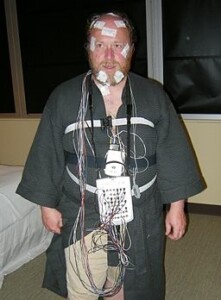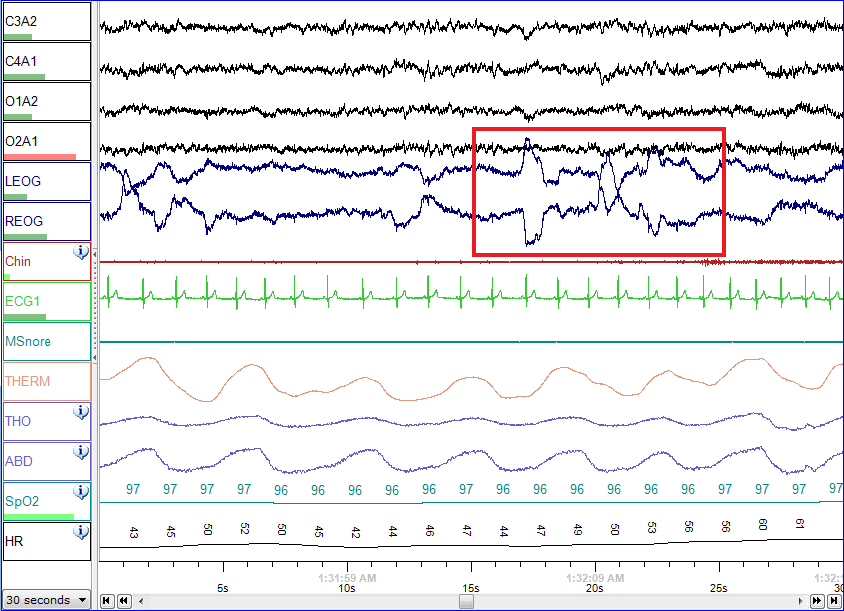The American Sleep Apnea Association estimates that 22 million Americans suffer from sleep apnea, and that 80 percent of the cases of moderate and severe obstructive sleep apnea are undiagnosed. It is most common in men over 40, especially those who are overweight or obese. Obstructive sleep apnea is by far the most common. If left untreated, it can lead to a wide range of serious health issues, including high blood pressure, heart disease, and stroke, as well as depression and neurodegenerative diseases like dementia.
Ho Sung Kim, assistant professor of neurology at the Keck School of Medicine of USC, aims to make the diagnosis of sleep apnea easier using a portable in-home device and, as a result, reduce the number of people who suffer from the related health issues. He was awarded a $50,000 Technology Advancement Grant by the USC Stevens Center for Innovation to help develop his solution during the 2020-21 academic year.
 “A big challenge in addressing sleep apnea is the expense and inconvenience of getting an effective diagnosis,” Kim said.
“A big challenge in addressing sleep apnea is the expense and inconvenience of getting an effective diagnosis,” Kim said.
Polysomnography (PSG) is the gold standard method for diagnosis of sleep apnea. The PSG consists of an overnight recording of different physiological signals, including electroencephalogram, electrocardiogram, airflow, oxygen saturation in arterial blood, respiratory efforts, snoring, and body position. A PSG takes place in a specialized sleep laboratory or at a major hospital, oftentimes located a long distance from the patient, and it can be expensive.
As a result, patients with sleep apnea are often reluctant to get tested. This means that diagnosis and treatment are often delayed, and the opportunity to prevent sleep apnea-led brain and heart disease is missed. In addition to the serious health consequences, delayed diagnosis causes a reduced quality of life for the patient due to the persistent drowsiness they experience, accompanied by diminished cognitive performance and social functioning, before the disease is recognized and treated.
Kim and his team aim to develop an artificial intelligence (AI) method to automatically and accurately detect sleep apnea using data obtained from portable and inexpensive devices that a patient can wear at home. To accomplish this, his team is using deep learning AI techniques to assess if this approach can achieve an accuracy of sleep apnea detection comparable to that of the experts working in a sleep laboratory.
“The goal is to produce a portable hardware and software solution that will mitigate the time and expense as well as avoid hospitalization required for a PSG procedure,” Kim said.
The proposed technology will be able to be integrated with wearable devices such as smart watches, which have found broad applications in the marketplace. In addition, the technology will be very affordable and will help reduce health care expenses by avoiding the costs of a sleep study at a specialized clinic, which are currently borne by the patient and health insurers.
USC researchers who want to learn more about the USC Stevens Technology Advancement Grants (TAG) program will find information on the Stevens Center website. Letter of Intent applications for the next round of funding are being accepted through February 5, 2021.
~Photos by Joe Mabel and NascarEd, CC BY-SA 3.0, via Wikimedia Commons.
